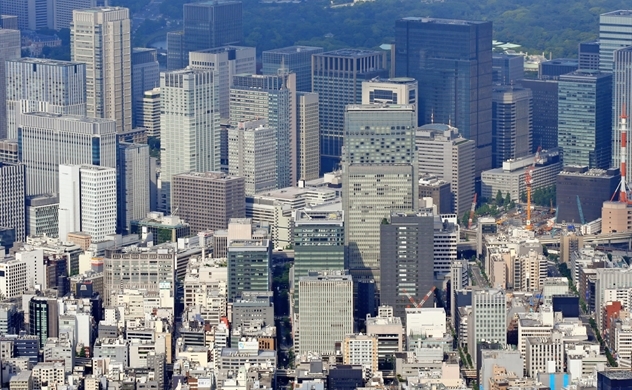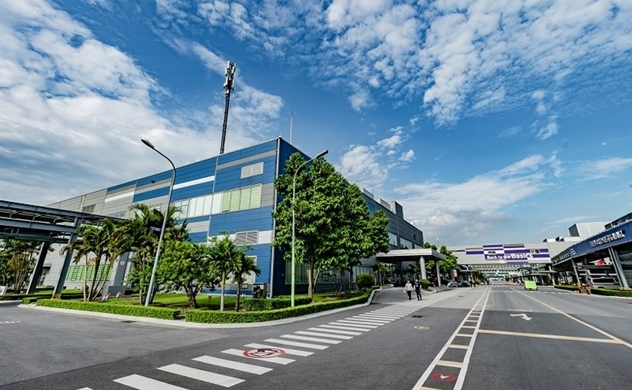Japan business sentiment plunges to 7-year low, BOJ Tankan shows

The Bank of Japan's quarterly Tankan survey of business sentiment fell to its lowest point since 2013, the central bank said April 1, although the drop was less severe than many analysts predicted.
Sentiment among Japan's large manufacturers plunged in January-March, marking the fifth straight quarter of declines and the longest downturn since the collapse of Lehman Brothers in 2008, the Bank of Japan's latest Tankan survey showed on Wednesday.
The closely watched index of sentiment among large manufacturers fell to minus 8 from zero in the October-December period, the lowest reading since 2013. Economists had expected a reading of minus 10, according to a poll taken by Nikkei group company QUICK.
Sentiment among large nonmanufacturers dived to plus 8 from plus 20.
The results paint a picture of deteriorating business sentiment, though not as severe as many market watchers had feared. They reflected a number of factors, including the uneven impact of the virus on the Japanese economy, signs of recovery in China and the continued spread of the epidemic in the U.S.
The survey pointed to a further deterioration of confidence over the next three months, with the index dropping to minus 11 for large manufacturers and minus 1 for large nonmanufacturers. "The results point to extreme uncertainty about the business environment," said Hideo Kumano, chief economist at Dai-ichi Life Research Institute.
In China, where the outbreak first appeared, the coronavirus seems to have passed its peak. Economic activity is beginning to rebound there, while in the U.S., the outbreak shows few signs of subsiding. But, Kumano warned: "You shouldn't expect China to save your business. Damage to business is yet to be fully accounted for. Downward revisions in sales and profits are likely, going forward."
The indexes measure the percentage of companies that say business conditions are favorable minus those that say the opposite. It is considered an early indicator of Japan's economic health and possible monetary policy shifts.
The Bank of Japan expanded its monetary stimulus on March 16 in an effort to support the economy from the coronavirus-induced shock, doubling the amount of share purchases and launching a program to provide loans to industries hit by the pandemic. Prime Minister Shinzo Abe said last week that he will put together an economic stimulus package worth as much as 10% of the nation's gross domestic product by early April.
The steep deterioration in business sentiment is another illustration of how the virus has hobbled the economy.
Manufacturers' export markets have suddenly gone dark, as countries such as China and the United States shut down their business activity in an effort to contain the virus. This has also created a shortage of parts produced in China, holding up production at automobile and other industries.
Nonmanufacturing sectors have also taken a hit from a sudden halt in inbound tourism as well as the cancellations of concerts and other big events, trends that have affected a broad range of businesses, including hotels, airlines, restaurants and retailers.
The pandemic hit as the Japanese economy was struggling to recover from a sales tax increase on Oct. 1 and from supply disruptions caused by a typhoon later that month. The crisis also hit as the global economy was hampered by a two-year-old downturn amid the U.S.-China trade war.
The survey revealed the economic impact of the virus has been uneven. The sharpest deteriorations were seen in sectors such as hotels and restaurants, as well as transportation, including airlines. On the other hand, the pulp and paper industry got a boost from surging demand for toilet paper and tissues.
Large companies expect sales to increase 0.6% in the fiscal year starting in April, following a decline of 1.6% in fiscal 2019. Big companies' combined operating profit is expected to fall 1.9% this fiscal year after sliding 8.7% in fiscal 2019.
Business investment across all industries, including small business, is forecast to fall 0.4% after climbing 2.7% in 2019, the survey showed.
"Business investment plans are likely to be scaled back sharply," said Yuichi Kodama, chief economist at the Meiji Yasuda Research Institute. "People have no idea how long the coronavirus crisis will continue." But Kodama predicted sentiment will start improving once it becomes clear the outbreak has peaked in countries such as the U.S.
The survey also showed a gradual easing of labor shortages, especially among small- and medium-size companies. Many businesses have laid off temporary workers in response to the plunge in demand caused by cancellations of events and the government's request that people work from home. "Labor shortages are likely to ease greatly, going forward," Kodama said.
Source: Nikkei Asian Review
Same category news
-
Tsubasa Suruga
-
Kenya Akama - Fumika Sato
-
Cong Thanh
Latest news
-
Huyen Hoang

 TIẾNG VIỆT
TIẾNG VIỆT 








_291615658.jpg)









